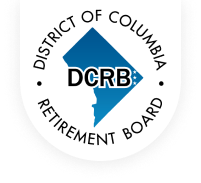District of Columbia Employees Health Benefits (DCEHB) Program
If you were hired by the District of Columbia Government in a benefits-eligible position on or after October 1, 1987, and you retired under the optional, voluntary, mandatory, or involuntary options, you are eligible to continue your health insurance coverage with the District of Columbia Employees Health Benefits (DCEHB) Program, provided you had 10 consecutive years of service with the District and you contributed to the health insurance program for 5 consecutive years immediately preceding the effective date of your retirement.
If you retired due to a disabling condition with at least five creditable years of service, you are eligible to continue your District of Columbia-sponsored health insurance coverage as well.
Access the Other Post-Employment Benefits Application Form Here
Please refer to the Frequently Asked Questions or the brief video below for helpful information about enrolling or making changes to your Plan. If you have any additional questions, don't hesitate to contact DCRB Member Services or call the Member Services Center at 202-343-3272.
What Health Insurance Coverage is Available to Me?
The District of Columbia currently offers four different Health Care Providers. These include:
- Aetna Healthcare HMO, PPO or CDHP;
- Kaiser Permanente HMO;
- United Healthcare Choice Nationwide HMO and PPO
- CareFirst BlueCross BlueChoice HMO, PPO, or CDHP
If you are age 65 and over, you may be eligible to select one of the Medicare Advantage plans offered by the District of Columbia Employees’ Health Benefits Program. Medicare Advantage, also known as “Medicare Part C,” is offered by a private company that contracts with Medicare to provide a beneficiary with Part A and Part B Medicare. The retiree must still pay the Part B premium.
Only current retirees who currently participate in a DC Employee Health Benefits plan and have Medicare Part A and Part B. Each enrollee must be Medicare-eligible. If a dependent is not Medicare eligible, the retiree may not enroll in a Medicare Advantage plan and must stay in a current non-Medicare plan. For example, If the retiree has a dependent who is not Medicare eligible, the retiree may not enroll in a Medicare Advantage plan if they wish to insure their dependent.
The carriers offering a Medicare Advantage plan through the District of Columbia Employees Health Benefits Program include Aetna, CareFirst (Blue Cross Blue Shield), Kaiser Permanente, and United Healthcare. Select the carriers below for more information about each plan, including its enrollment form and summary of benefits.
- Aetna Medicare Advantage
- CareFirst (Blue Cross Blue Shield) Medicare Advantage
- Kaiser Permanente Medicare Advantage
- United Healthcare Medicare Advantage
Are My Family Members Covered?
Yes, your eligible family members may be enrolled in your DCEHB coverage.
Do I Need to Submit Proof of My Family Member’s Eligibility?
If you are enrolled in Self Plus One or Self & Family coverage, at the request of the Office of Personnel Management, you may be randomly selected to provide proof of your dependents’ eligibility.
What Do I Have to Do?
You must submit acceptable proof of eligibility for each family member within 30 days of the open enrollment closing date, or they will automatically be removed from coverage.
What Happens If I Refuse to Send the Documentation?
If you do not provide the required documentation, your family members will be deemed ineligible and removed from coverage.
Ineligible Enrollment Consequences
The District of Columbia Employee Health Benefits Program has strict rules to ensure the integrity and fairness of the system. Here are some key points:
- False Statements and Misrepresentation: Any intentionally false statement or willful misrepresentation, such as including ineligible family members on your health insurance plan, is considered a violation of the law. This can result in penalties, including fines up to $10,000, imprisonment for up to 5 years, or both.
- Investigations: Violations may be subject to investigation, and individuals found guilty may face legal consequences.
- Eligibility: Only eligible dependents can be included in the health insurance plan. Providing false information about dependents can lead to serious repercussions.
- Penalties: The penalties for such violations are designed to deter fraudulent activities and ensure that the benefits are provided only to those who are rightfully entitled to them.
When and How Can I Make Changes to My Coverage?
You can make changes to your coverage during the annual District of Columbia Annual Benefits Open Season (mid-November through mid-December) or following a qualifying life event. During this time, you can change plans, options, or the type of enrollment (Self Only, Self Plus One, or Self and Family).
How Can I Learn More About My Options?
The plan sponsor, the District of Columbia Human Resources (DCHR), provides additional information on each of the plans mentioned. Before making your final enrollment decision, be sure to review the individual DCEHB brochures, as each brochure serves as the official statement of benefits for that plan.
I Have Coverage With a Non-DCEHB Carrier. Can I Cancel My DCEHB Plan?
Yes, you can cancel your coverage either during the open enrollment season or within 30 days of obtaining coverage outside of the DCEHB program. However, please note that if you cancel your coverage, you will not be able to re-enroll in the program.
Updated: 12/8/2025
